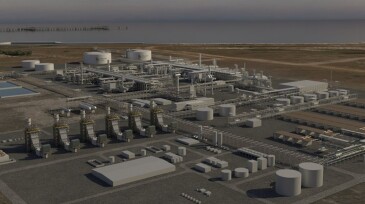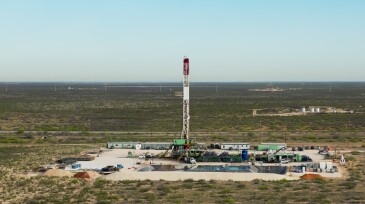Management
Updates about global exploration and production activities and developments.
This paper reviews the simultaneous supercritical CO2/brine aquifer injection and water-alternating-gas methods for geologic carbon sequestration and proposes a novel integration with saltwater-disposal wells.
The objective of this study is to numerically investigate system behavior when storing H2/natural gas (CH4) mixtures in aquifer-related underground gas storage, and the effect of gas composition and salinity on energy-recovery efficiency.
-
By resuming work on the Rovuma LNG project, ExxonMobil tees up a final investment decision expected in 2026 as East Africa’s LNG hub begins to take shape with three separate projects now in construction.
-
Westwood Energy analysts suggest operators have an opportunity to secure rigs at lower rates for their 2027 drilling programs.
-
GeoMap Europe is the latest in a series of interactive global geothermal maps that combine large subsurface and surface data sets to highlight where geothermal resources and development opportunities are strongest for power, heat, cooling, and storage.
-
The North Sea Transition Authority’s survey highlights shifting innovation and deployment priorities across 46 operators, offering a basinwide snapshot of technologies driving efficiency gains, strengthening asset integrity, and accelerating progress toward net-zero performance in the UK North Sea.
-
The contract will cover the design and manufacturing of tree systems, flexible flowlines, a manifold, and controls, as well as installation of the subsea production system.
-
The Essington-1 well is the first discovery in the Otway since 2021.
-
The ruling means the state will take over permitting and enforcement of EPA regulations pertaining to all classes of wells, including injection wells for carbon dioxide storage.
-
Proposed and final notices of sale represent nearly 80 million acres in the Gulf of Mexico and approximately 1 million acres in Alaska’s Cook Inlet.
-
The US and UK sanctioned Russian independent Lukoil International and state-owned Rosneft in a bid to pressure Russia over Ukraine.
-
Ranger acquires American Well Services for $90.5 million, adding 39 workover rigs and boosting its fleet by 25%.












